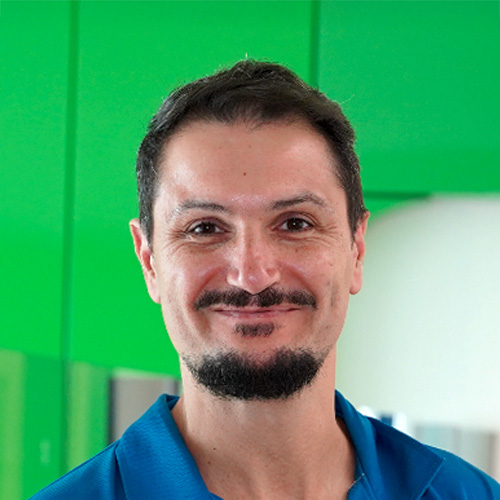Researchers
Our research is structured into research themes, programs of work and teams. We are committed to collaboration and to work together.

Research theme leaders

BA (Education) PhD Candidate
Director of First Nations Strategy and Leadership; Head, First Nations Health and Equity Research

BSc PhD
Head, Chronic Diseases Research

OAM BSc (Hons) GradDipClinEpi PhD

BSc (Hons) PhD
Head, Brain and Behaviour Research

BSc (Hons) MSc PhD
Feilman Fellow; Head, Precision Health Research and Head, Translational Intelligence

BMedSci (hons), PhD
Shaping excellence
Rewarding excellence
Learn more about how The Kids rewards research excellence
Learn more about how The Kids rewards research excellenceResearch governance
We pride ourselves on conducting research to the highest standards possible
Find out more about research governanceCurrent career opportunities
Want to join our team and help make a difference to child health?
Learn more about Current career opportunitiesHelp shape our research
Find out how you can involve consumers and the community in your research
Help shape our researchReports & findings
Safety, tolerability, and pharmacokinetics of a 2 g subcutaneous dose of ceftriaxone as an alternative to intravenous delivery
Subcutaneous delivery of antibiotics is a practical alternative to intravenous administration. Ceftriaxone is commonly used for a variety of infections with limited data on the safety and pharmacokinetics of a 2 g subcutaneous dose. This was a prospective, self-controlled cross-over study in 20 stable inpatients receiving ceftriaxone for their infection. Following an intravenous dose, participants received a single dose of 2 g subcutaneous ceftriaxone, in 50 mL normal saline via gravity feed.
‘How I cook with no kitchen’: An investigation of how #microapartment kitchens are depicted on TikTok
Physical constraints of small apartment kitchens and the influence of the surrounding community food environment may impact food practices of apartment residents. Social media portrayal of these features may influence public perception of apartment living.
Abdominal Imaging at Initial Diagnosis and Following Relapse in Children With Acute Lymphoblastic Leukaemia
Acute lymphoblastic leukaemia (ALL) is the most common paediatric malignancy and remains one of the most common causes of cancer-related death in children and adolescents. It is characterised by the proliferation of immature lymphoid cells capable of infiltrating bone marrow, blood and extramedullary sites. Five-year overall survival rates exceed 90% with current multidrug chemotherapeutic regimens. This manuscript reviews the abdominal imaging features of leukaemic infiltration in children with ALL at the time of initial diagnosis and following relapse.
Hot weather, maternal health, and pregnancy experiences, impacts and responses: A systematic review of global qualitative research
Extreme heat exposure is a major global public health threat that is affecting people across the life course, including the pregnancy period. Studies have linked extreme heat with adverse pregnancy and newborn health outcomes globally.
